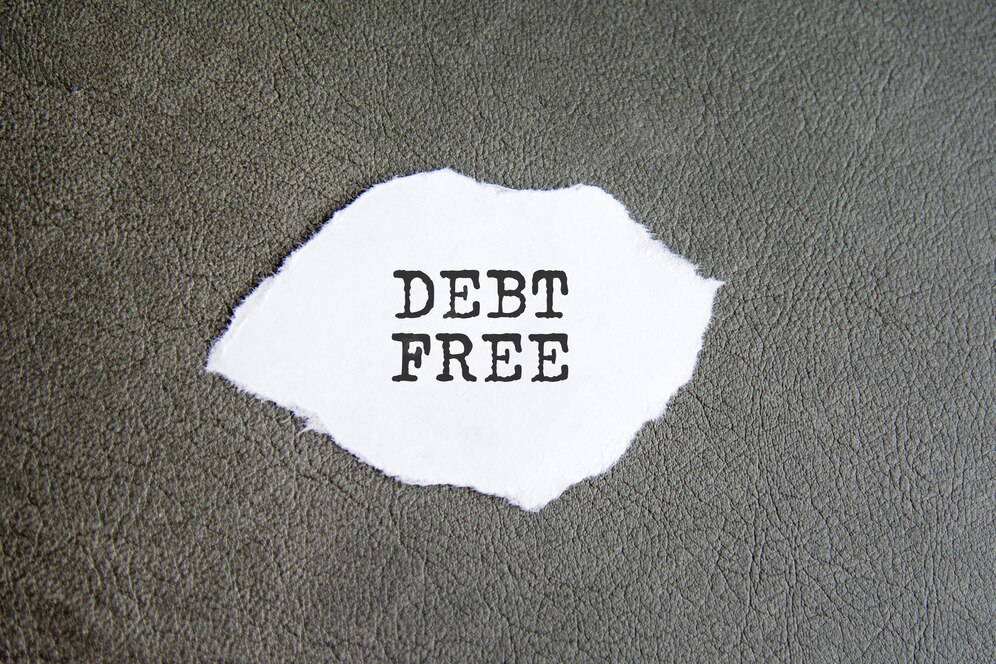Find a Debt Settlement Company in Paulsboro, New-Jersey
Are your debts weighing you down? Have they been building up? Do you try to cover them every month, but it has become impossible since interest rates continue going up. If it has come down to considering filing bankruptcy, “Don’t” would be something you would later wish you had not done.
Try every means possible not to have to turn to bankruptcy. What you need to do is contact a debt settlement company in Paulsboro, New-Jersey, just to find out what they have to offer and what exactly they can do for you.
If all your other options are gone, and bankruptcy is something you are considering, please, do your research on a few different ones first, of course, and remember that you should never sign anything before you do your homework due to scams.
Did you know that debt settlement will not stay on your credit profile as long as bankruptcy will? That is correct; it is 7 years for debt settlement programs and 10 years for a bankruptcy proceeding. For that matter, bankruptcy is going to follow you around for the rest of your life.
What are the advantages of debt settlement?
When your credit report is seen by others – debt settlement will be more acceptable than would bankruptcy! Should you ever decide to file bankruptcy, keep in mind that anyone who sees your credit report is not going to receive a good impression with a bankruptcy on there? Also, remember that although bankruptcy will come off your credit report in 10 years, it will follow you around forever!
The debt can be paid quicker this way – Taking 3 to 4 years; however, it is sometimes possible to get your bad debt(s) paid off in under 1 year with a good debt settlement company. Whereas all the other methods may take up to 5 years. The debt settlement company will combine all of your debts so that you get a much lower monthly payment and also a lowered interest rate. You may want to think twice if the agency offers to lower your monthly installment and interest rates even further if you agree to the longer timeframe to pay them. Somehow this sounds like you could end up paying more than you expected.
Debt settlement programs have got your back – They work hard to protect your reputable name by shielding your credit rating. Debt settlement programs keep your credit from being a matter of public record. The answer is “yes”; debt settlement programs are going to show up on your credit profile. On the other hand, it is not going to decrease your credit rating like a bankruptcy proceeding will.
You may even get to hang on to your credit cards – Which simply means when your paperwork is initially prepared, and your agreement does not specify that you are barred from utilizing your credit cards, you will get to keep them! However, it would somehow defeat the purpose of debt settlement.
You can have your debt management simplified – Once your bad debt is settled and cleared, you do not need to concern yourself about keeping up with several different monthly payments, for the debt settlement company will still handle all of this for you. You will no longer have to worry each month about several different creditors or their different interest rates; you will only have to be sure to make that one installment each month.
What are the Disadvantages of Debt Settlement Services?
The collateral you have to put up in order to get the debt settlement loan is risky. Many people use their homes or their car as collateral, but if for any reason (this would also include having an emergency and ending up in the hospital), your collateral could be forfeited, meaning they can take it from you! It is understandable that they would want some assurance of getting their money if something happens where you would not be able to complete your agreement with them.
Pay attention to any hidden fees – The only things you should be charged for would be the application fee, the fees for using their services, and the 10 to 25% they charge on the debt amount you are asking for help with. This is paid throughout the time period they set up, usually 1 to 2 years. So, a person who has $10,000 in debt will pay the debt settlement agency (going with 10%) $1,000. However, you can also choose to pay the amount you save instead, and this would be 10% of the amount saved if your debt is lowered by 50% ($500).
Working with a debt settlement agency is a serious matter, one in which you do not want to throw caution to the wind. There are some debt settlement agencies out there that are scamming people. They may be one of those that ask for a huge amount of money in advance or one of those who have been overcharging by covering up hidden fees that are not real.
And it is for this reason that you are advised to do the homework and research a debt settlement agency (several of them) prior to signing with any. One way to find out something about the agency would be to contact the Attorney General of your state, and another would be to contact your local consumer protection agency and the Better Business Bureau (BBB). Reviewing the feedback of people who have previously used that particular debt settlement agency but, if the feedback does not ever have anything negative, nothing to say bad about them, be cautious.
If a debt settlement agency asks you if you would be interested in taking a longer period to make your monthly installments if they give you a lower monthly installment and a lower interest rate, there is a chance that you will end up paying more in the long run.
You might have to pay taxes on your settled debt – Your collector and creditors are supposed to send you a copy of the 1099-C (cancelation of debt tax notice) that they send in with their business tax returns to the IRS; this tells them that your debt has either been settled or as a cancelation of that debt. It is the part of the debt which you did not have to pay (you saved) that you are required to pay taxes on.
You must also send your 1099-C (cancelation of debt tax notice) that the collectors and creditors send to you because the IRS will know if you do not. The reason for sending yours in is that it is now claimed as part of your income by the IRS, and they expect you to pay taxes on it.
There are tax implications for having your debt settled – Although settling your debt may relieve your stress, you should be preparing ahead of time for the taxes you may be required to pay on the amount of the debt that was forgiven. It is best that you contact a professional in tax preparation or finances to see what they advise you to do.
The IRS is also going to receive a report from creditors that are going to let them know your debt was settled, so if you try to avoid paying, they will know about it. This could quickly cause you to be audited if they notice too many red flags with your tax returns. Therefore, if you did not report the settled debt or make payments on the taxed portion, you could end up owing more than the taxes. They could penalize you and additional fines.
If you owe a large about of debt and you are hoping to get a large portion of it settled, being aware of what you could potentially owe is important. You do not want to save money from owing creditors only to be unable to pay the IRS.
There are risks involved with debt settlement
Debt settlement is not all that it is made out to be. For instance, a settlement company cannot make any guarantees on the amount or percentage they can get your debt down to, and neither can they honestly tell you that you will be debt free within a certain amount of time. It cannot be stressed enough that debt settlement should only be used as a last resort.
The following are some of the risks involved with a debt settlement program:
Your credit could be hit hard. By the time it will take you to deposit enough into an escrow account to use towards paying off your debts, your accounts are going to already be considered delinquent and already be charged off. Which is going to be on your credit report for 7 years.
The entire time the penalties and interest of each of your debtors will continue to accrue. Not to mention the late charges and penalty fees they add on. Face it; interest fees and late charges will continue to increase the balance of your debt.
The law states that you cannot be charged ahead of time/upfront fees by settlement agencies; however, once they settle an individual debt, you have to pay the method originally agreed on, which could be a percentage of the amount of debt you initially started the debt settlement with (or) it can be a percentage of the amount of debt that was eliminated.

